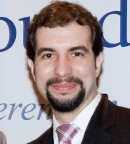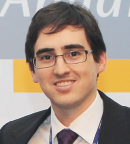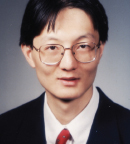
The Conquer Cancer Foundation of the American Society of Clinical Oncology (CCF) encourages grantees to share the results of their research to help advance progress against cancer. Publication in peer-reviewed journals is one of the most important ways for scientists to achieve recognition. That said, not all journals are created equal. When submitting research for publication, scientists must also consider the “impact factor” of the academic journal, or the measure of a journal’s relative importance within its field. Funding agencies such as CCF also look at the impact factor of journals to assess the effectiveness of their research-funding investments.
CCF is proud to have funded many high-impact research studies over the past 3 decades. In a recent survey of Young Investigator Award (YIA) and Career Development Award (CDA) recipients, at least 95% of all CCF grant recipients are currently publishing their research, and many of these studies are published in top-tier academic medical journals. This is evidence that initial investments from CCF donors into the research careers of these early-career investigators are paying off. As part of its yearly impact evaluation, CCF is pleased to report that at least 145 cancer research studies funded by CCF were published in academic journals during 2015, with the following eight studies appearing in high-impact* publications:

Daniel Costa, MD, PhD, MMSc
2009 CDA recipient Daniel Costa, MD, PhD, MMSc, Associate Professor of Medicine at Harvard Medical School and a medical oncologist at Beth Israel Deaconess Medical Center, led a study published in the Journal of Clinical Oncology which found that in patients with ALK-rearranged non–small cell lung cancer who were ALK-inhibitor–naive and had brain metastases, crizotinib was associated with systemic and intracranial disease control.

Luiz Henrique de Lima Araujo, MD, MSc
2012 Long-term International Fellowship recipient Luiz Henrique de Lima Araujo, MD, MSc, a medical oncologist at the Brazilian National Cancer Institute, led a study published in the Journal of Clinical Oncology in which data suggested that African American ancestry may not be significantly different from European/White background for the presence of somatic driver mutations in non–small cell lung cancer. Dr. Araujo and colleagues also demonstrated that using a comprehensive genotyping approach could identify numerous targetable alterations, with potential impact on therapeutic decisions.

Samantha Jaglowski, MD
2011 YIA recipient Samantha Jaglowski, MD, Assistant Professor at The Ohio State University, led a study published in Blood which demonstrated the tolerability and clinical activity of combining ibrutinib with ofatumumab in patients with chronic lymphocytic leukemia, with quicker time to best response compared to single-agent ibrutinib and with durable response.
Note: Dr. Jaglowski’s YIA was supported by the Journal of Clinical Oncology.

Salvia Jain, MD
2013 YIA recipient Salvia Jain, MD, medical oncologist at Beth Israel Deaconess Medical Center, led a study published in Blood which found that the mucin 1 C-terminal subunit (MUC1‑C) oncoprotein contributed to maintenance of redox balance in cutaneous T-cell lymphoma cells, highlighting this protein’s potential as an effective novel target for treatment.

Kathleen Mahoney, MD, PhD
2014 YIA recipient Kathleen Mahoney, MD, PhD, Instructor of Medicine at Harvard Medical School and a medical oncologist at Beth Israel Deaconess Medical Center, wrote a review published in Nature Review Drug Discovery which discussed the leading drug targets that are expressed on tumor cells and in the tumor microenvironment that allow enhancement of the antitumor immune response.
Note: Dr. Mahoney’s YIA was supported by the Kidney Cancer Association.

Paul Paik, MD
2012 CDA recipient Paul Paik, MD, a medical oncologist at Memorial Sloan Kettering Cancer Center, and colleagues performed next-generation sequencing of metastatic squamous cell lung cancers and primary lung-brain metastasis pairs, identifying PI3K-aberrant tumors as an aggressive subset associated with brain metastases. The results, published in Cancer Discovery, described how his team identified genetic heterogeneity between lung primaries-brain metastases as well as clonal populations that may highlight alterations important in the metastatic process.
2013 CDA recipient Ran Reshef, MD, MSc, Director of Translational Research in the Blood and Marrow Transplantation Program at Columbia University Medical Center, led a study published in the Journal of Clinical Oncology which found that higher graft CD8 cell dose predicted improved survival and enabled better donor selection in patients undergoing allogeneic stem cell transplantation with reduced-intensity conditioning.

Alan Shih, MD, PhD
2013 YIA recipient Alan Shih, MD, PhD, Instructor at Memorial Sloan Kettering Cancer Center, led a study published in Cancer Cell which showed that mutations in TET2 and FLT3 can cooperate to induce acute myeloid leukemia, with a defined leukemia stem cell population that is resistant to targeted therapies and characterized by site-specific changes in DNA methylation and gene expression.
To learn more about these specific research studies, please contact CCF. Visit ConquerCancerFoundation.org to learn more about the funding opportunities available through the CCF Grants and Awards program and to support cancer research. ■
*CCF defines “high-impact publications” as oncology journals with impact factors above 10.
© 2016. American Society of Clinical Oncology. All rights reserved.

